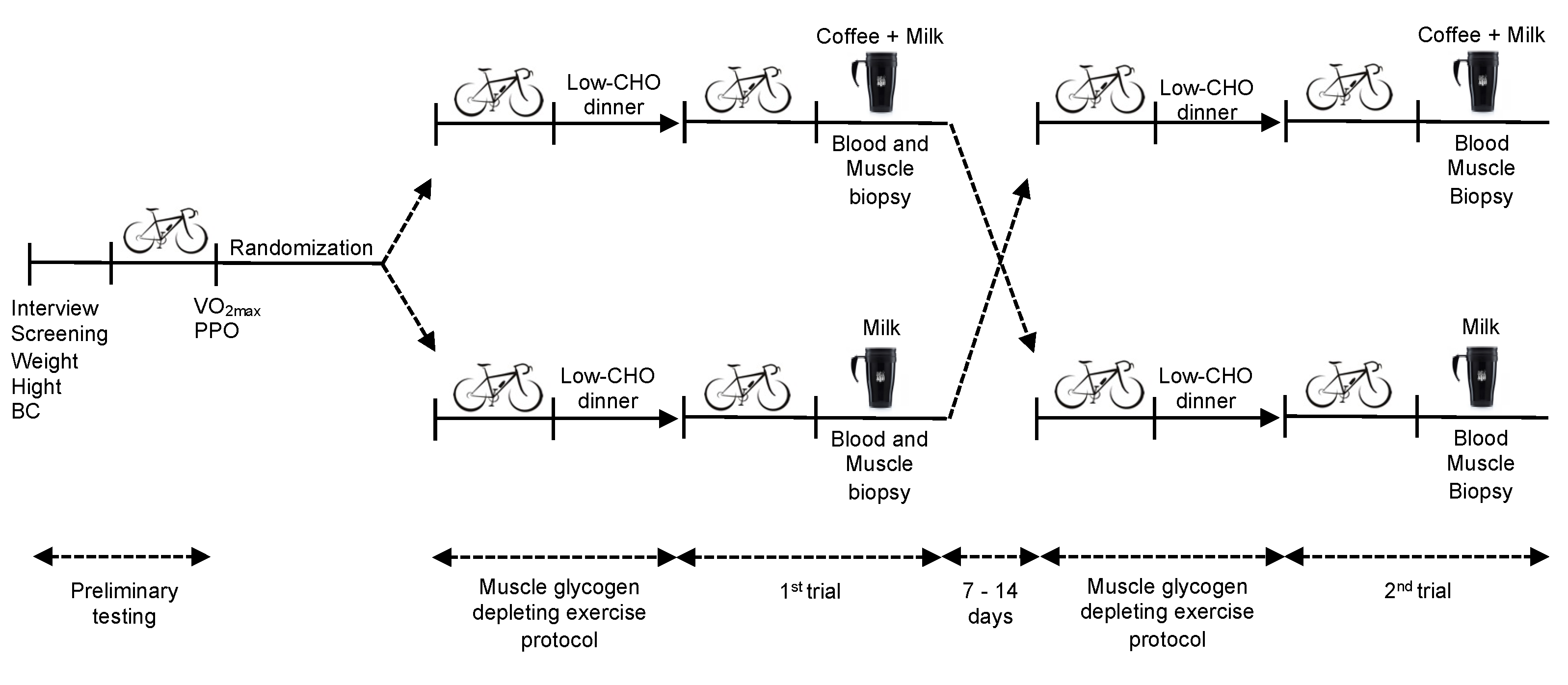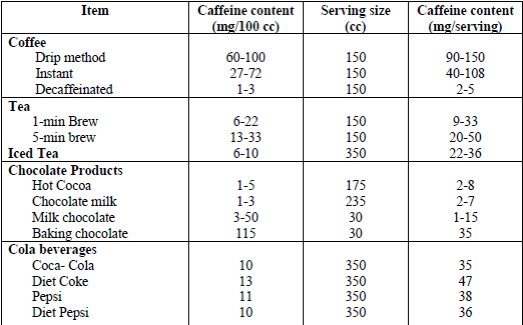Effects of caffeine on exercise performance:
- Increases aerobic endurance and muscle endurance – medium effect. Aerobic endurance appears to be the form of exercise with the most consistent moderate-to-large benefits.
- Increases in force and anaerobic power have constantly shown weaker effects.
- A study from 2021 show that coffee ingested 30 minutes before endurance exercise increased maximal fat oxidation in coffee naive men (drinking less than a cup of coffee a day) by 11-13% (source)
-
According to some studies, caffeine appears to improve physical performance in both trained and untrained individuals.
-
The metastudy analysis by Grgic et.al 2018 indicated a significant increase in upper body, but not lower body strength, with caffeine ingestion. Lower body strength increased more with free weights compared to leg press on machines.
- Caffeine seems like an effective aid for achieving acute increases in muscle power expressed as vertical jump height.
- Effects of caffeine are affected by genes, but the reasearch is inconclusive whether your genes makes you benefit from caffeine or not.
Does caffeine increase glycogen resynthesis?
A team of scientists from the University of Brazil compared the speed of glycogen recovery after glycogen depletion in the muscles of trained cyclists. (source – randomized, placebo-controlled, double-blind study).
Coffee with carbohydrates resulted in faster muscle glycogen resynthesis compared to the control group, with the difference between final and initial glycogen levels being 153% greater for the coffee group (102.56 vs. 40.54 mmol/kg dry mass).
Improvement was observed at doses of 8 mg of caffeine per kg, however. For a 60 kg cyclist, this would mean 480 mg of caffeine. For comparison, a regular espresso contains approx. 80-100 mg. This study is consistent with others that have shown a benefit for glycogen resynthesis but at rather high doses of caffeine, which is impractical. (source)

What needs more reasearch?
Habituation to caffeine
Research in females and across the cycle
Caffeine metabolism
Caffeine Absorption:
- Caffeine is absorbed slower when taken with food and the fastest in form of chewing gum.
- It takes 15-45 minutes for the caffeine metabolites to enter the bloodstream and peaks in about an hour. The rate of digestion depends on the form of caffeine.
- Carbohydrates combined with caffeine (such as used in sports gels) reduce the effectiveness of caffein (source)
-
Caffeine absorption is inhibited by turmeric, vegetables such as cabbages, cauliflower and broccoli (increase levels of CYP1A2)
-
Smoke from cigarettes and burnt animal fat increases metabolism rate of caffeine , enhancing its effects, decreasing half-life of caffeine. Polycyclic aromatic hydrocarbons (PAHs) in cigarette smoke can almost double the metabolism rate of caffeine. Smokers are reported to drink almost one cup of coffee more each day than nonsmokers. (source)
-
Low dose is metabolised slower than high dose.
Effective Caffeine Dosage:
-
The effective dose depends on several factors, such as genetic mutations (people who react differently to caffeine), sport, the source of caffeine,,the dose of caffeine, and attenuation to caffeine.
-
3-6mg / kg has proven to be the best choice, with a lower dose still having an effect and a higher one can already cause feelings of anxiety, insomnia and digestive problems.
-
Ingestion of doses above 6mg / kg may lead to negative effects such as gastro-intestinal issues, anxiety, shakiness, insomnia.
-
The use of caffeine in conjunction with endurance exercise in the heat and at altitude is well supported when dosages range from 3 to 6 mg/kg and 4–6 mg/kg
-
“The International Olympic Committee mandates an allowable limit of 12 μg of caffeine per ml of urine. A caffeine dose in the range of 9 to 13 mg/kg approximately one hour prior to performance will reach the maximum allowable urinary concentration for competition.” AceFitness.org

Source: https://www.issf-sports.org/news.ashx?newsid=3065
On average, espresso contains 80mg of caffeine.
-
Nespresso capsules (5g) Espresso Capsules: 55-65 milligrams
-
Nespresso capsules (5g) Lungo Capsules: 77-89 milligrams
-
McCafe Espresso (single shot): 71 milligrams
-
McCafe Espresso (double shot): 142 milligrams
-
McCafe Latte (all flavors; 16 ounces): 142 milligrams
-
McCafe Mocha (all flavors; 16 ounces): 167 milligrams
Caffeine Tolerance:
Caffeine in combination with lack of sleep:
In this study on athletes, they observed the performance of athletes with reduced sleep duration (4.5 hours). They compared the results in three conditions:
- caffeine 5mg / kg
- 20 minutes of sleep
- placebo followed by 20 minutes of sleep / caffeine followed by 20 minutes of sleep
Subsequently, approx. they did 6 sprints for half an hour.
And how did it turn out?
- It has been confirmed that sleep has improved sprint performance.
- It was confirmed that caffeine did not have a positive effect on sprint performance. Even with mild lack of sleep.
- It has been shown that caffeine in combination with a np has had a greater benefit for performance than sleep or caffeine alone.
However, this strategy should not be part of the usual training protocol, as caffeine also increases muscle damage caused by exercise. You better sleep well.

